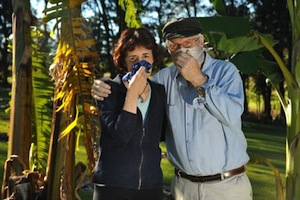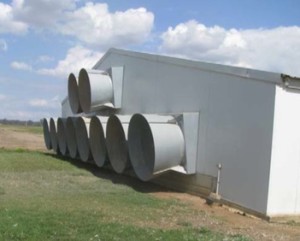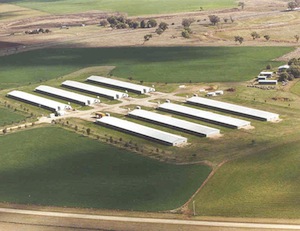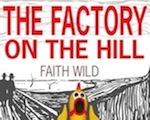Noise, Odour and Visual Amenity
August 6, 2013 by admin
Filed under NOISE, ODOUR & VISUAL
Noise Issues
Community noise impacts from poultry operations result typically from the operation of equipment on the farms, transport of feed to the farms and the transport of live chickens from the farms. Noise may be a particular issue if transport occurs during the night or early morning or when the birds are distressed. Community impacts of noise are related to non-auditory health effects of noise as the community noise exposure is not likely to be sufficient to cause hearing loss. Noise can result in annoyance, disturbed sleep and impacts on the cardiovascular system such as increased blood pressure.
The transmission of noise and resulting impacts are affected by many factors, including atmospheric conditions, local topography and noise barriers. Residents are more sensitive to noise in the evenings and night when background noise levels are lower and the potential for sleep disturbance is greater.
Excessive noise levels are generated from shed ventilator fans and feed delivery blowers, bird noise, shed maintenance, site machinery and increased heavy vehicle traffic. Imagine having to listen to the annoying sound of reversing heavy vehicles regularly in the early hours of the morning when the birds are being collected from the sheds for transport to Brisbane.
• A thorough noise impact study has still not been presented to council.
For instance, we are told that catches are in the night, but not how often and at what times. Inghams Enterprises uses steel cages, the noise in the early hours of the morning will travel for kilometres. We know this because people already 2km can hear the applicant run his water pump.
Noise from the proposed broiler farm will be a major concern to residents up to 3 km from the site, both day at night.
Noise levels vary and are influenced by atmospheric conditions, wind, temperature and relative humidity and by topography. Since the operation is set on ridge tops, this will increase noise levels by reflecting or channelling noise towards various locations, further exacerbated in the quiet of night.
Odour Issues
In meat chicken production odours arise from:
• manure, and storing or moving it
• cleaning out shed litter between cycles
• composting litter materials
• applying stored or treated bird waste to land
• disposing of carcasses
• transporting treated or untreated wastes off site.
Odour is a complex hazard. Odour may be associated with one specific compound or a mixture of compounds. The nuisance impact of odour can depend on a number of factors including the duration and frequency of the odour, the degree of unpleasantness of the odour, whether it is possible to temporarily move to an area not affected by the odour and the belief that the odour has an adverse effect on wellbeing.
The extent of the odour problem is dependent on prevailing weather conditions and the farm layout. Residents in a direct line to exhaust fans or downwind of poultry farms are more likely to be affected. Poultry farm odours tend to stay close to the ground and flow into low-lying areas if not dispersed. Temperature inversions, particularly at night, act to prevent the dispersion of odours into the upper atmosphere and tend to be located closer to the ground in rural areas than in urban areas.
And because dead birds in these operations average 4 percent of the total numbers, around 60,000 carcasses need to be taken away each year. The applicant’s plan now includes includes a coolroom to store dead birds in, although it would not be a sufficient size to handle the mortality if a whole shed experiences a calamity or disease outbreak. Nor are the dead bird removal vehicle trips mentioned in the traffic report.
It’s easy to imagine now neighbours will be affected in the various ways by this inappropriate rural development, but imagine how unpleasant it would be for those living on the actual broiler farm just near the sheds. As one report noted:
“In these operations, the main job of the farm owner is to remove, dispose of and record the dead birds on a daily basis. Assuming an industry average 4% mortality rate, this means 1,400 birds dying over the 6 week growing cycle in each shed, with the farmer on average picking up 30 dead birds a day in each shed over the cycle. His main job, therefore, is recognizing dead or dying birds, killing sick birds, picking up dead birds and disposing of them.” Food Safety News
Watch this VIDEO showing dust and noise from a broiler shed.
Litter Operations in and Around the Sheds
Litter management operations take place inside the sheds between batches. Even when litter remains in the shed to be reused, odour is still generated. Firstly when the litter is pushed into piles and again when it is spread in preparation for the next batch. The litter is pushed into a pile to allow it to heat up to control pathogens (pasteurization). Moisture levels of the litter pile may have to be increased (water added) to initiate the decomposition process and to ensure the necessary temperature is reached. The decomposition process that generates the heat is unlikely to be completed by the time the litter is respread in eight to ten days (assuming 14 days between batches). This means that the odour released when the pile is respread may be particularly offensive. At times that odour may still be impacting on neighbours well into the first week of the next batch.
Visual Amenity
There will be severe visual disturbance to the ruaral surrounds from the siting of buildings on ridge-lines. Even with proposed tree planting and landscaping, this ridge-top development is going to be an eyesore for years to come. In our opinion the area is totally unsuitable for operations of this size and nature, particularly in relation to the roads in the immediate area.
When broiler sheds are placed in more remote locations, on flat land, and with easy access to main roads that don’t carry lots of traffic, and away from popular tourist destinations, they are a more economic proposition and not as disruptive.
The operation of a massive broiler chicken farm in rural Cooroy is completely at odds with the sustainable vision of the Noosa Biosphere. – The whole operation will not fit at all well with Noosa’s green image.
Chook poo has Flaxton residents up in a stink

Kim and Kevin Oxley from Flaxton are furious about the smell coming from their neighbour’s farm caused by chicken manure.
Article from Sunshine Coast Daily
COUNTRY air has been known to have a certain desirable aroma to it, but the smell coming from a Flaxton property is on the nose.
Residents in the hinterland town have been complaining about the stench coming from an acreage where chicken manure has been used as a fertiliser.
The smell is so pervasive that some residents like Kim Oxwell have locked themselves indoors and have even tried using sheets under doorways to keep the odour out.
It hasn’t helped.
“The manure was put down about three weeks ago and depending on the blow of the wind it can be horrendous,” Mrs Oxley said.
“We put sheets under the door to stop the smell getting in the house, but it is useless.” Read more





I live nearby and am not looking forward to the noise and smell that will come from this huge project, let alone the litter dust that will settle on my property.
How on earth has the proposal got so far in council without any proper consultation with those of us who will find themselves having to live with this broiler factory farm.
It doesn’t matter what they do, chicken farms stink. I’ve lived near one and I’m glad to tell anyone, about the problems of living near one.
Where there is odour there is toxicity! I have been dealing with breast cancer so this is a true setback to my ongoing healing process. I live here to get away from pollution and stress, and to think that profits of individuals could be more important than the health, safety, well-being and living conditions of others is just NOT acceptable. This is wrong on so many levels and I can’t even begin to express my outrage about this situation. I have only just found out about this and believe that many others would not have had the chance to put in submissions either.
Faith